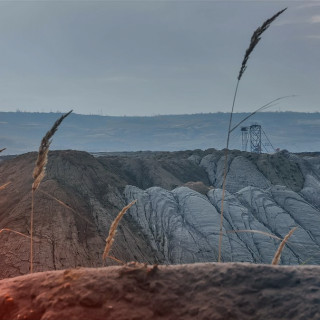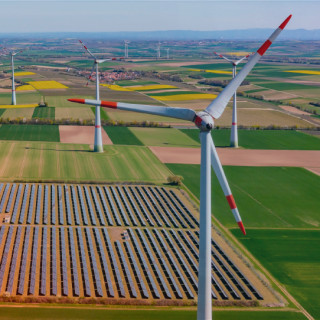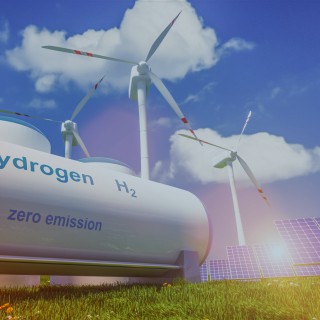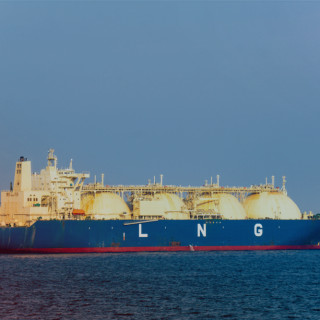Wyniki wyszukiwania
22 results for query Hydrogen
Reports(7)
-
From the Loire to the Vistula River | Three steps in planning the energy transition

Polish-French relations have become a bit difficult lately. When President Macron said in an interview that the Paris climate protesters should move to Warsaw because it is Poland that is blocking European climate ambitions, Poland was in turmoil. Leaving aside the emotions, it is worth looking at how the French are coping with the energy transformation. This is what the new analysis of the Forum Energii is about.
30.9.2019 -
Poland: climate neutrality by 2050. Electrification and sector coupling

Electrification sets the direction of inevitable changes in many areas of our lives, including transport and heating. This direction will force a closer cooperation of various sectors of the economy with the future, completely different from today's power system. The integration of three industries — transportation, heat, and power generation— is the new concept for the operation of the entire energy sector. What can it look like in 2050? How will the necessary changes bring Poland closer to the goal of climate neutrality? Forum Energii in the new analysis convinces that a good strategy of sector coupling is a benefit for the Polish economy and society.
19.6.2020 -
Green Gases | Biomethane and hydrogen in Poland

Over the next decades, the way Europe generates energy will change significantly. The goal of achieving climate neutrality means fossil fuels will be replaced by renewable energy sources within 30 years. Playing a key role will be biomethane and green hydrogen produced from RES—green gases—the development of which should already be spearheaded Poland. It is necessary to start planning the rational use of these gases in the economy because there probably will not be enough for everyone, and some sectors will be easier and cheaper to decarbonise through electrification. Poland is already working on setting the framework for their use in various sectors of the economy. The latest report by Forum Energii may help in preparing the strategy.
25.6.2021 -
Distribution grids and electromobility. Planning and development

In recent days, British Prime Minister Boris Johnson announced an acceleration in the development of electromobility. By 2030, 145,000 charging points are to be built in Britain, and from 2022 all new residential and office buildings will have to be equipped with chargers. This is just one of the announcements of the global revolution in transportation. In Poland the pace and character of changes have different dimension. The National Fund for Environmental Protection and Water Management (NFOŚiGW) has just announced a programme of subsidies for the construction of charging stations for electric and hydrogen vehicles as well as PLN 1 billion support for operators to develop distribution networks.
30.11.2021 -
Energy in Belchatow After Lignite

Transitioning Europe's largest coal power plant to a secure, resilient, affordable clean energy future. New study outlines a transition plan for Europe’s largest coal-fired power plant, located in Belchatow, Poland.
20.10.2022 -
Potential of cable pooling in Poland

The development of renewable energy sources is one of the most urgent needs of the Polish energy system. RES lower energy costs, reduce emissions and increase energy security. However, although energy companies, industry, local authorities and individual consumers are interested in investments in RES, the further development of new, emission-free energy sources has been a challenge. One of the main problems is the denial of connection capacity to new RES investments. In addition to the necessary grid investments, a more efficient use of the existing infrastructure is needed to solve this problem. One of the tools available is cable pooling - enabling the interconnection of RES sources.
18.5.2023 -
Past time for gas?

Over the past two years, natural gas has become a high-risk fuel: it is subject to huge price fluctuations and, following the disruption of supplies from Russia, competition for imports of this resource from other sources is increasing. Not long ago, there were plans in Poland to significantly increase the consumption of natural gas throughout the economy - by 75% by 2035. It was supposed to be a transition fuel.
14.6.2023
Insights(13)
-
Will the revenues from CO2 emissions disappear into thin air?

Low emission energy transition will cost up to 200 billion EUR in the years to come. This impressive amount may suggest that Poland cannot afford to invest in the power or heating sectors. Meanwhile, building a safe and reliable system is crucial for citizens, economy and climate. It is high time to look at potential sources of financing for low-carbon modernisation, and make sure they do not vanish into the budget.
28.8.2019 -
Will the Polish offshore finally speed up?

Offshore wind farms are still a distant perspective, even though the first location permits were issued in 2012. After many years, a draft act on the promotion of offshore wind electricity generation, which is expected to accelerate offshore development in Poland, has been finally prepared. The period of public consultations of the bill ended on February 14th and there is a chance to complete the legislative efforts by mid-2020. Are the proposed solutions sufficient and will they serve their purpose?
17.2.2020 -
Energy sector integration | Key to becoming climate-neutral by 2050

The future energy mix will be dominated by renewable energy sources (RES) with zero production costs, such as wind farms and photovoltaics. The abundance of cheap electricity will allow for the replacement of fossil fuels, both in heating and transport sectors. Effective integration of these sectors, within one energy system, will also help to solve the problem of weather-dependent RES production.
28.7.2020 -
Green hydrogen strategy still too gray

The government is about to conclude its public consultation of the draft Polish Hydrogen Strategy until 2030 with an Outlook until 2040. It gives hope that this time around Poland will join other European countries in the early stages of creating new technological solutions and supply chains. It is a chance for building national potential in a new industry and creating jobs. However, the hydrogen strategy is not yet reflected in other strategic documents defining the future of the Polish energy sector.
15.2.2021 -
EU Recovery Fund: 3 things Poland needs to do for the mechanism to bring real change

The National Recovery Plans are built on credit. The investments we design today must serve future generations—our children—because we all will be paying it back until 2057. It is based on concrete reforms, changes that need to happen in order to achieve the intended objectives. The consultations on the recovery plan in Poland is now coming to an end. How should we change it so that the money pays off in the future? In this opinion, I refer to the Green Energy and Energy Efficiency Component.
31.3.2021 -
FIT FOR 55 - what will the package contain?

On 14 July, the European Commission will publish the Fit for 55 package consisting of several legislative proposals. This will officially launch the discussion on measures to achieve the interim EU climate neutrality target, i.e. a 55% reduction of CO2 emissions compared to 1990. Before these rules finally come into force, they have to be accepted by EU member countries (i.e. the Council) and the European Parliament. The negotiations will take at least a year, most likely - two. The changes will not be law until 2024, but it is high time we considered how to implement them for the benefit of the climate and the economy.
13.7.2021 -
10 steps to overcome the energy crisis

The prices of coal, gas, and CO2 are reaching record levels while the price for electricity is galloping, causing panic among politicians, energy consumers, and institutions responsible for maintaining Poland’s energy security. There is a state of emergency in the Polish energy sector caused by, among other things, the situation on the energy source market, but not only. The country is also bearing the consequences of many years of postponing necessary modernisation decisions. It is time to take urgent actions that match the situation.
8.12.2021 -
E-mobility - a chance for further development of economic cooperation between Poland and Germany

The Polish and German economies work in a system of interconnected vessels.Even if the echoes of the visit of the new German Chancellor Olaf Scholz to Poland suggest that there are many issues that divide us, there are also those that unite us. For instance the development of electromobility may raise this cooperation to a higher level, but it is necessary to prepare strategically for it. The focus should be on cooperation in the area of technological developmentbattery production and recycling, joint planning of infrastructure, as well as exchange and sharing of knowledge, especially in the area of innovation.
20.12.2021 -
The end of energy resource imports from Russia?

On February 24, Russia started the Ukrainian war. Nothing will be the same again. Russia's brutal attack made the ongoing conflict around energy resources all the more obvious. In 2021 alone Russia could have earned PLN 500 billion (or $120 billion). from the export of energy resources[1]. This revenue funds the Kremlin's military spending. Now we are considering whether giving up Russian fossil fuels is possible. Undoubtedly, this would be a radical solution with far-reaching and not entirely known consequences. If this were to happen, solidarity and close cooperation within the EU would be more important than ever before. In this article, we analyze what options Poland has to break its energy dependence on Russia.
28.2.2022 -
RRP: The bare minimum for over €9bn

With one year delay the national Recovery and Resilience Plan (RRP) is entering Poland. So far, the discussion around the RRP has focused primarily on money. Meanwhile – and this is particularly evident in the area of energy transition – the RRP is an instrument that has mobilised the Polish government to work out the necessary reforms, involving an in-depth analysis of challenges ahead, assessment of specific solutions, and necessary legal changes, all within specific timeframe. Investment support – although crucial – plays a secondary role in accelerating the implementation of reforms.
2.6.2022 -
Renewables can reduce fuel imports

Last year the import of gas, oil and coal cost Poland PLN 89 billion. This year, it will be much more - by the end of June it already amounted to PLN 85 billion[1]. The supply crunch and spike in fuel prices have become the source of an economic and energy crisis, and a means of exerting pressure on Europe. Meanwhile, renewables not only reduce emissions and energy prices, but also import dependency on energy resources.
29.11.2022 -
Conclusions from the 7th capacity market auction - cleaner, but adequacy remains a challenge

The results of the seventh auction in the Polish capacity market clearly show the dilemma Poland has faced - existing high-carbon (coal) capacity can no longer be supported with this mechanism, while gas is risky due to the geopolitical situation. Although Polish energy companies have not completely abandoned gas projects, fewer appeared in the auction than previously announced. There is also clearly a greater variety of technologies than before - for the first time, contracts were granted to storage. The market is still expensive - for the second year in a row auctions ended in the first round and at the maximum price.
20.1.2023 -
Anatomy of Dependence: How to Eliminate Rosatom from Europe

EU countries depend on cooperation with Russia in the field of nuclear energy. This has meant that even despite the Russian full-scale invasion of Ukraine, the Rosatom corporation has not been sanctioned and trade in this sector is growing. This situation is unfavourable for the EU and increases its vulnerability to blackmail from Russia. Moreover, it strengthens the Russian military. The EU should increase its efforts to diversify supplies and build its own capabilities in the nuclear sector.
5.9.2023
Events(2)
-
Panel expert meeting | Green Gases
18.11.2020 zoom
One of the key goals of the European Union is to achieve climate neutrality. This cannot be done without the energy transition. The aim of the event, in the formula of a panel expert meeting, was a critical discussion on the further development of green gases, based on the guidelines for the hydrogen strategy of the Ministry of Climate and the report of the Forum Energii, which will be published soon.
-
Expert panel | Understanding RES targets
12.10.2023
In September 2023, a revision of the Renewable Energy Directive (RED III) was adopted to promote the development of renewable energy in the European Union until 2030. The directive sets transformational targets for EU countries, which will require both political and organisational cooperation to achieve. But behind these targets are the European Union's aspirations to increase its energy independence, reduce emissions and lower the cost of oil, gas and coal imports.